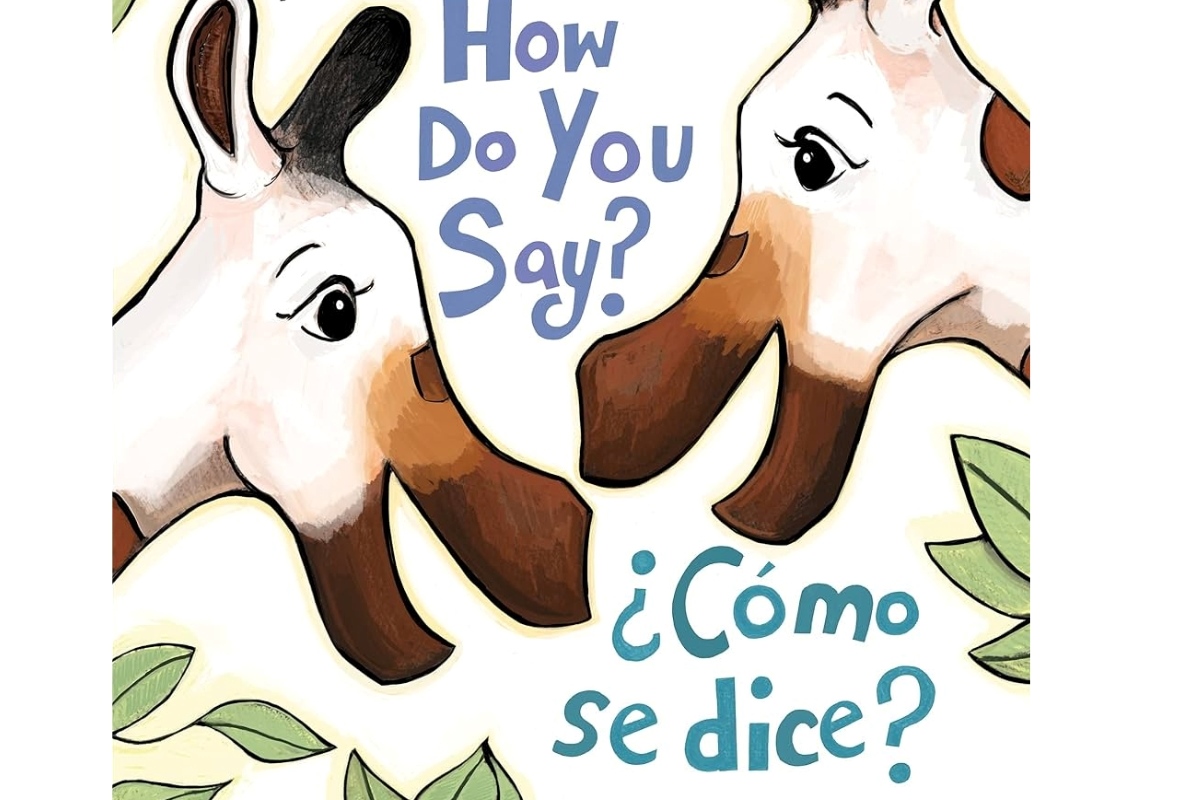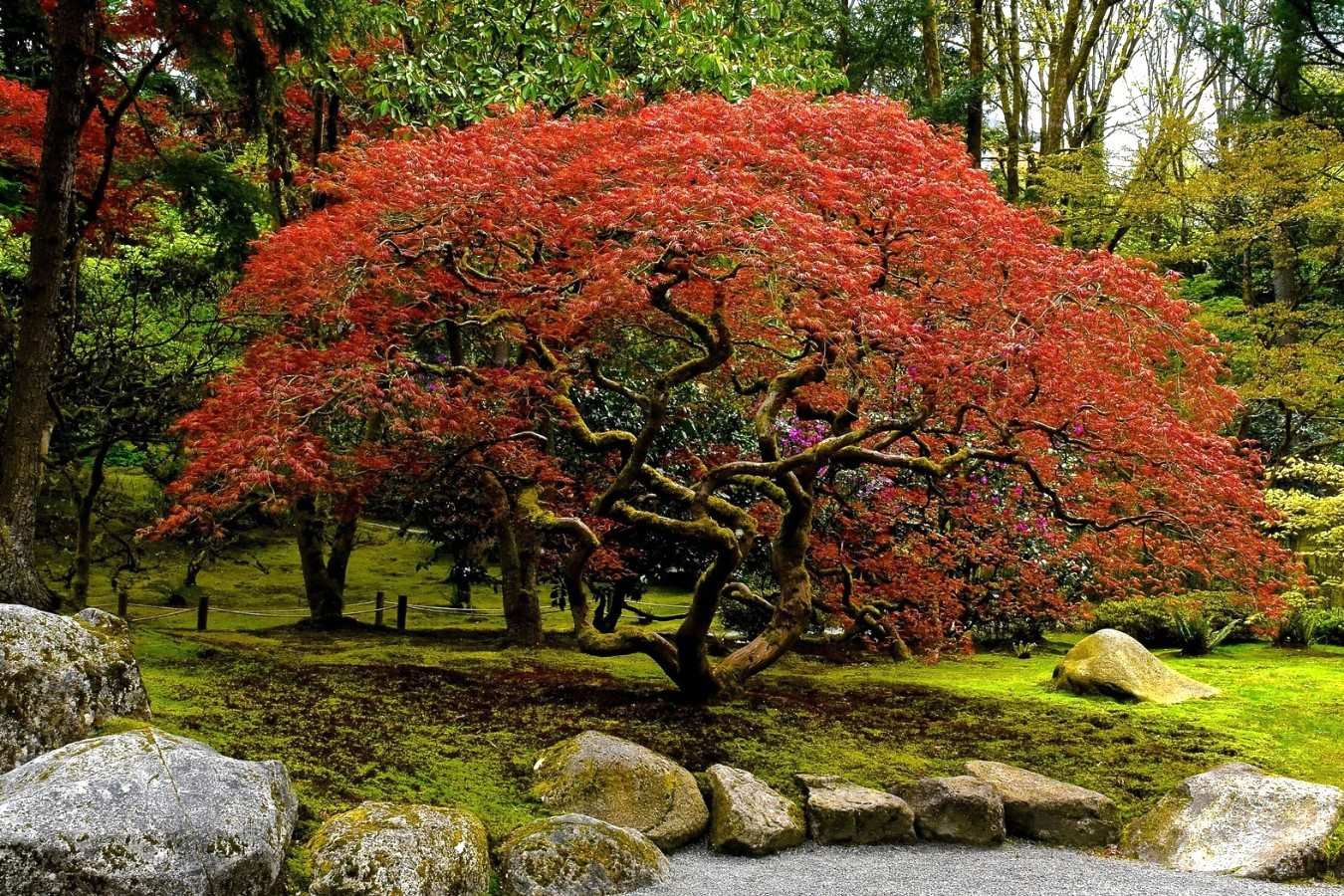Home>Language and Grammar>How To Say ‘Good Morning’ In Japanese


Language and Grammar
How To Say ‘Good Morning’ In Japanese
Published: March 5, 2024
Learn how to say "Good Morning" in Japanese and explore language and grammar tips in this comprehensive guide. Master the basics of Japanese greetings and more!
(Many of the links in this article redirect to a specific reviewed product. Your purchase of these products through affiliate links helps to generate commission for Noodls.com, at no extra cost. Learn more)
Table of Contents
Introduction
When learning a new language, mastering basic greetings is often the first step towards effective communication. In Japanese culture, the exchange of greetings holds significant importance, reflecting the country's emphasis on politeness, respect, and social harmony. Among the various greetings used in Japanese, expressing "Good Morning" is a fundamental aspect of daily interactions.
Understanding how to say "Good Morning" in Japanese not only facilitates communication but also demonstrates cultural awareness and respect for local customs. This simple yet meaningful gesture can foster positive connections and leave a lasting impression on native Japanese speakers. In this article, we will delve into the nuances of greeting etiquette in Japanese culture, explore the different ways to say "Good Morning," and uncover the cultural significance behind this customary salutation.
As we embark on this linguistic journey, we will unravel the intricacies of Japanese greetings, shedding light on the diverse expressions used to convey "Good Morning." By delving into the cultural context and linguistic variations, we aim to provide a comprehensive guide that not only equips you with practical language skills but also enriches your understanding of Japanese customs and traditions. So, let's embark on this enlightening exploration of how to greet someone with a warm and respectful "Good Morning" in Japanese.
Read more: How To Say Goodbye In Japanese
Basic Greetings in Japanese
In Japanese culture, greetings play a pivotal role in daily interactions, reflecting the country's deep-rooted values of respect, humility, and social harmony. When engaging with others, it is customary to begin conversations with a polite greeting, setting a positive tone for the interaction. Understanding and using basic greetings is essential for anyone seeking to navigate the intricacies of Japanese communication.
The most common and versatile greeting in Japanese is "Konnichiwa," which translates to "Hello" or "Good afternoon." This greeting is typically used from late morning to early evening and is suitable for both formal and informal settings. It is a versatile salutation that can be employed in various social contexts, making it an indispensable phrase for anyone learning Japanese.
Another essential greeting is "Konbanwa," which is used to say "Good evening." This phrase is appropriate for use from late afternoon to early nightfall and is a respectful way to acknowledge someone during the evening hours. Whether interacting with colleagues, friends, or acquaintances, using "Konbanwa" demonstrates cultural awareness and consideration for proper etiquette.
When bidding farewell or parting ways, the phrase "Sayonara" is commonly used to say "Goodbye." While this term has gained international recognition, it is important to note that "Sayonara" is typically reserved for more permanent farewells, such as when leaving a place or saying goodbye to someone for an extended period. For casual or temporary departures, the phrase "Ja mata" or "Mata ne" can be used, conveying a sense of "See you later" or "Until we meet again."
In addition to these standard greetings, the expression "Ohayou gozaimasu" holds special significance as the morning greeting in Japanese. This phrase is used to say "Good morning" and is an integral part of Japanese social etiquette. Mastering the pronunciation and usage of "Ohayou gozaimasu" is essential for anyone seeking to convey respect and warmth during morning interactions.
By familiarizing oneself with these basic greetings, learners of Japanese can navigate social interactions with confidence and cultural sensitivity. These phrases not only facilitate communication but also reflect an understanding and appreciation of Japanese customs and traditions. As we delve deeper into the intricacies of Japanese greetings, let's explore the various ways to express "Good Morning" in Japanese, unraveling the nuances and cultural significance behind this essential salutation.
Saying 'Good Morning' in Japanese
In Japanese culture, the morning greeting holds a special place in daily interactions, symbolizing the beginning of a new day and reflecting the Japanese value of politeness and respect. The customary phrase used to convey "Good Morning" in Japanese is "Ohayou gozaimasu." This expression is not only a polite acknowledgment of the start of the day but also a reflection of the speaker's consideration for the well-being of the recipient.
The phrase "Ohayou gozaimasu" is characterized by its warmth and formality, making it suitable for both casual and formal settings. When addressing friends, family members, colleagues, or acquaintances in the morning, using "Ohayou gozaimasu" demonstrates a genuine desire to extend goodwill and positive energy at the start of the day.
Pronounced as "oh-ha-yoh goh-za-i-mas," this greeting embodies the essence of Japanese etiquette and cultural norms. The inclusion of "gozaimasu" adds a layer of respect and politeness to the greeting, aligning with the Japanese emphasis on humility and consideration for others. When spoken with a genuine smile and a slight bow, "Ohayou gozaimasu" becomes a heartfelt expression of goodwill and camaraderie.
Furthermore, the timing of the morning greeting is crucial in Japanese society. It is customary to use "Ohayou gozaimasu" from the early morning until around 10 a.m., acknowledging the beginning of the day and the fresh start it brings. By adhering to this cultural convention, individuals convey their awareness of proper timing and their commitment to observing traditional customs.
In addition to its literal meaning, "Ohayou gozaimasu" encapsulates the spirit of empathy and consideration for others' well-being. By exchanging this morning greeting, individuals express their genuine concern for the recipient's health and happiness, fostering a sense of camaraderie and mutual respect.
Mastering the art of saying "Good Morning" in Japanese goes beyond linguistic proficiency; it embodies an understanding of cultural nuances and a genuine appreciation for Japanese customs. By embracing the phrase "Ohayou gozaimasu" and its cultural significance, learners of Japanese can forge meaningful connections and navigate social interactions with grace and respect. This simple yet profound greeting serves as a bridge to connect with others, transcending language barriers and fostering mutual understanding and goodwill.
Different Ways to Say 'Good Morning' in Japanese
In Japanese culture, the expression of "Good Morning" encompasses a rich tapestry of linguistic variations, each carrying its own nuances and cultural significance. While "Ohayou gozaimasu" serves as the standard and widely recognized morning greeting, there exist alternative phrases that reflect regional dialects, informal settings, and varying degrees of familiarity.
One informal yet commonly used variation of "Good Morning" in Japanese is "Ohayou." This abbreviated form retains the warmth and friendliness of the traditional greeting while infusing a casual and familiar tone. "Ohayou" is often employed among close friends, family members, or peers in informal settings, reflecting a sense of camaraderie and closeness. Its relaxed nature fosters a sense of intimacy and comfort, making it a popular choice for morning interactions among individuals with established rapport.
In the Kansai region of Japan, particularly in areas such as Osaka and Kyoto, the phrase "Okini" or "Okiniiri" is used as a distinctive morning greeting. This regional variation reflects the unique dialect and cultural identity of the Kansai area, adding a touch of local flavor to the customary salutation. Embracing "Okini" as a way to say "Good Morning" not only showcases an appreciation for regional diversity but also fosters a sense of belonging and cultural inclusivity.
Furthermore, the expression "Ahou" or "Ahou ga" is another informal and playful way to convey "Good Morning" in Japanese. This lighthearted variation is often used among close friends or in a jovial context, adding a touch of humor and affection to the morning greeting. While "Ahou" may not be as widely recognized as other formal expressions, its usage reflects the dynamic nature of language and the diverse ways in which individuals connect through shared expressions of goodwill.
In addition to these variations, the phrase "Asa" or "Asa desu ne" can be used to express "Good Morning" in a more casual and conversational manner. This simplified form, while less formal than "Ohayou gozaimasu," retains the essence of morning salutations and is often employed in relaxed social settings or among peers. Its simplicity and versatility make it a fitting choice for expressing warmth and friendliness in everyday interactions.
By embracing the diverse ways to say "Good Morning" in Japanese, individuals not only expand their linguistic repertoire but also gain insight into the cultural nuances and regional diversity that enrich the fabric of Japanese society. These variations reflect the dynamic nature of language and the myriad ways in which individuals connect, fostering a sense of inclusivity and appreciation for the multifaceted tapestry of Japanese greetings. Whether employing the standard "Ohayou gozaimasu," embracing regional variations, or infusing informal expressions, each variation serves as a testament to the richness and depth of Japanese language and culture.
Cultural Significance of Saying 'Good Morning' in Japanese
The act of saying "Good Morning" in Japanese extends far beyond a mere salutation; it embodies profound cultural significance deeply rooted in the values and traditions of Japanese society. This customary morning greeting serves as a conduit for expressing respect, empathy, and communal harmony, reflecting the intricate tapestry of Japanese social etiquette and interpersonal dynamics.
In Japanese culture, the exchange of morning greetings is a symbolic gesture that transcends linguistic communication, encapsulating a genuine concern for the well-being of others. By uttering "Ohayou gozaimasu" or its variations, individuals convey their acknowledgment of the start of a new day and their sincere wishes for the recipient's health and happiness. This expression of goodwill fosters a sense of camaraderie and mutual respect, laying the foundation for positive interactions and fostering a harmonious social environment.
Furthermore, the cultural significance of saying "Good Morning" in Japanese is intricately intertwined with the concept of mindfulness and consideration for proper timing. The timing of the morning greeting reflects an awareness of traditional customs and societal norms, underscoring the importance of observing appropriate etiquette in daily interactions. By adhering to the established timeframe for using morning greetings, individuals demonstrate their respect for cultural traditions and their commitment to upholding social harmony.
Moreover, the act of exchanging morning greetings in Japanese embodies the spirit of humility and politeness, reflecting the country's emphasis on interpersonal respect and harmonious coexistence. The formal and respectful nature of the standard morning greeting, "Ohayou gozaimasu," underscores the Japanese value of humility and consideration for others, fostering a culture of mutual respect and dignified interactions.
Additionally, the diverse linguistic variations of the morning greeting in Japanese, such as regional dialects and informal expressions, highlight the rich tapestry of cultural diversity within Japan. Embracing these variations not only showcases an appreciation for regional customs but also fosters a sense of inclusivity and cultural understanding, enriching the fabric of Japanese society.
In essence, the cultural significance of saying "Good Morning" in Japanese transcends linguistic conventions, serving as a conduit for expressing respect, empathy, and communal harmony. This customary salutation embodies the essence of Japanese social etiquette, reflecting the country's values of humility, mindfulness, and cultural diversity. By embracing the cultural nuances of morning greetings, individuals can forge meaningful connections and navigate social interactions with grace and respect, contributing to a harmonious and inclusive society.
Conclusion
In conclusion, the art of saying "Good Morning" in Japanese transcends mere linguistic communication; it embodies a profound reflection of cultural values, respect, and communal harmony deeply ingrained in Japanese society. The customary morning greeting, "Ohayou gozaimasu," serves as a conduit for expressing genuine concern for the well-being of others, fostering a sense of camaraderie and mutual respect. By mastering the nuances of this essential salutation, individuals not only demonstrate linguistic proficiency but also showcase cultural awareness and appreciation for Japanese customs and traditions.
The diverse linguistic variations of the morning greeting, ranging from informal expressions to regional dialects, underscore the rich tapestry of cultural diversity within Japan. Embracing these variations not only enriches one's linguistic repertoire but also fosters inclusivity and cultural understanding, contributing to a harmonious and respectful society. Whether employing the standard "Ohayou gozaimasu," embracing regional variations, or infusing informal expressions, each variation serves as a testament to the richness and depth of Japanese language and culture.
Furthermore, the cultural significance of saying "Good Morning" in Japanese reflects the country's emphasis on mindfulness, consideration for proper timing, and the value of humility. Observing the appropriate timeframe for using morning greetings and adhering to established social etiquette demonstrates respect for traditional customs and societal norms, contributing to a harmonious and dignified social environment.
By embracing the cultural nuances of morning greetings, individuals can forge meaningful connections and navigate social interactions with grace and respect. This simple yet profound gesture serves as a bridge to connect with others, transcending language barriers and fostering mutual understanding and goodwill. Whether engaging in formal or informal settings, the exchange of "Good Morning" greetings in Japanese embodies the essence of respect, empathy, and communal harmony, contributing to a society characterized by mutual respect and cultural inclusivity.
In essence, the journey of learning how to say "Good Morning" in Japanese goes beyond linguistic proficiency; it represents an exploration of cultural values, traditions, and the diverse ways in which individuals connect through shared expressions of goodwill. By embracing the cultural significance of morning greetings, learners of Japanese can navigate social interactions with cultural sensitivity, contributing to a society characterized by mutual respect, empathy, and inclusivity.














